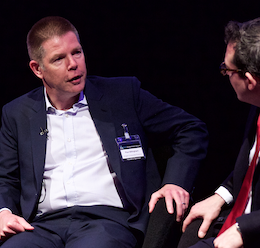 When seeking to exit or secure investment there are whirlpools and jagged rocks on all sides. Here, Knight Corporate Finance Director Paul Billingham steers you through the pitfalls.
When seeking to exit or secure investment there are whirlpools and jagged rocks on all sides. Here, Knight Corporate Finance Director Paul Billingham steers you through the pitfalls.
Ask anyone who has been through an exit or investment process with their business, or undertaken M&A, and they will tell you that there are many potential pitfalls to consider and overcome. From the outset it is important to always remember that there are three key stages to any process – planning, the transaction itself and post-completion. No stage is less important than the other. If one stage fails the whole process fails. When we meet with potential clients we always highlight how vital the planning stage is. Whichever type of transaction you undertake, it is crucial that you are fully prepared. You will need to know your ‘end game’ and ensure that the business is ready for what is likely to be a very intensive process.
If you do not plan and the business is not ready, the process is unlikely to get started, or will unravel at the transaction stage once due diligence starts. We have seen businesses rush into a process assuming that they are transaction ready, but once due diligence starts and they cannot answer questions or have the right information available, the process slows down and creates a lack of confidence from the other side. Fail to prepare, prepare to fail!
Once a process moves to the actual transaction stage, momentum is key, and key to momentum is ensuring that all parties on the transaction (buyer/investor, seller, management, lawyers, advisers) are all focused. You also need to ensure that the transaction does not distract from running the business day-to-day. A common mistake is that the founder or management get too involved in the process and take their eye off the ball. Nothing reduces the chances of a successful transaction more than a business under performing. Given a process can last anything between six and 12 months, it is vital that the organisation continues to perform in line with what has been set out in any Information Memorandum provided.
The transaction stage is always challenging. It can also be tiring and at times frustrating
The transaction stage is always challenging. It can also be tiring and at times frustrating. It is easy for founders to get emotional and even irrational at times, so keeping calm and poised is important. We have known of deals fail at the transaction stage purely because it has all been too much for a business owner and they simply decide to call it a day. When we work with clients we see a key part of our role as taking this pressure away. It is no coincidence that more deals fail when corporate finance advisers are not involved. Lawyers are an important part of the process but they don’t tend to get involved in the emotional aspects of a transaction.
Finally, the phase that is often ignored until the last minute is the post-completion stage. Knowing what each party wants post-completion is important, and with trade sales in particular, the success of a transaction will depend on delivering an agreed post-completion plan. We have seen buyers undertake transactions at low valuations, thinking they have a great deal, only to see the value erode post-completion because of either a lack of planning or lack of foresight about the potential pitfalls that ‘value’ deals often bring.
Many trade deals involve earn-outs and understanding the rules of engagement post-deal are vital in ensuring that there is no fall out between parties and success is maximised. Earn-outs can work very well, but the ones that do are those that have a clear set of aligned interests between all parties. If a founder wants to leave immediately but have consideration dependent on delivering an earn-out, can they be confident that it will be maximised in their absence?
Knight Corporate Finance always recommends using advisers on any transaction. Why? Because the most successful buyers in the market have specialist M&A teams, and investors undertake transactions day-in-day out – so we are always amazed by anyone considering a transaction without professional advice. It is true that an advised transaction results in higher fees, but hands on guidance greatly increases the chance of success. A good adviser will overcome all of the potential pitfalls outlined in this article.
